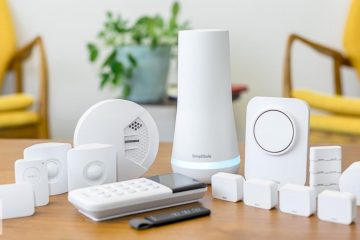What is identity theft and how can you protect yourself from it?
What is identity theft and how can you protect yourself from it?
Protect Documents With Personal Information In general, it’s also helpful to avoid leaving a paper trail of ATM, credit card or retail receipts behind. Identity thieves can use receipts to help piece together your personal data, so hold on to receipts and throw them away or shred them when you get home.
What are three ways that your identity could be stolen?
How can a thief steal my identity?steal your mail or garbage to get your account numbers or your Social Security number.trick you into sending personal information in an email.steal your account numbers from a business or medical office.steal your wallet or purse to get your personal information.
How can you reduce the risk of identity theft?
Change passwords often. Secure personal information in your home and at work, especially if you have roommates, employ outside help, or are having service work done in your home. Don’t carry your Social Security card with you; leave it in a secure place. Ask about information security procedures in your workplace.
Are you responsible if your identity is stolen?
You have limited liability for fraudulent debts caused by identity theft. Under most state laws, you’re not responsible for any debt incurred on fraudulent new accounts opened in your name without your permission. Under federal law, the amount you have to pay for unauthorized use of your credit card is limited to $50.
How do I protect my bank account from identity theft?
How to Prevent Identity TheftCheck your credit report at least three times per year. Make sure your computer has updated antivirus software. Make privacy a priority on social media. Keep your phone secure. Never use unsecured Wi-Fi. Change your passwords every 90 days. Check your online bank account every day.
Can someone hack my bank account with just my account number?
While someone cannot hack your account directly using only your bank’s routing number, a carelessly disposed of physical check can compromise your bank account because personal checks contain both your routing and account number.
How can I protect my identity for free?
Check all your financial accounts for errors or suspicious activity. Enroll in a credit monitoring service. Place a fraud alert on your credit reports. Consider freezing your credit. Alert the authorities. Always use strong passwords and be aware of information you give out. 6 steps to take after identity theft.
Can someone really steal your home title?
Although title theft isn’t real, a forged deed or mortgage can have a very real — often devastating — impact on the owner. Since the forger’s name will appear on the land records, the forger can sometimes deceive a third party into “buying” the property or a lender to take a “mortgage” of the nonexistent title.
How do I keep my identity safe?
Keeping Your Personal Information Secure OnlineBe Alert to Impersonators. Safely Dispose of Personal Information. Encrypt Your Data. Keep Passwords Private. Don’t Overshare on Social Networking Sites. Use Security Software. Avoid Phishing Emails. Be Wise About Wi-Fi.
Which identity protection is best?
The Best Identity Theft Protection Services of 2020 are:IdentityGuard.PrivacyGuard.LifeLock.IdentityIQ.Zander.ID Watchdog.IDShield.Experian.
Is LifeLock worth it 2020?
You might find a Norton LifeLock product worth the cost if: You are unwilling to freeze your credit. You want help resolving an instance of identity theft or have other security worries. You are also looking for privacy protections such as VPN, a password manager, etc.
Do I really need identity theft protection?
Consider paying for an identity theft protection service only if: You’re already the victim of identity theft or at high risk of it. You are unwilling to freeze your credit reports. You have checked and don’t have adequate identity theft monitoring available for free as a benefit or as a result of a data breach.
How can I check if my SSN is being used?
To see if your Social Security number is being used by someone else for employment purposes, review your Social Security Statement at www.socialsecurity.gov/myaccount to look for suspicious activity. Finally, you’ll want to use additional scrutiny by regularly checking your bank and credit card accounts online.
What is better than LifeLock?
IdentityForce also has better credit monitoring and credit reports from all three bureaus, making it our top pick for both identity theft protection and credit monitoring over LifeLock.
Does LifeLock protect your Social Security number?
Like all of LifeLock plans, it includes Social Security number and credit alerts†, lost wallet protection, and a service guarantee for lawyers and experts. ‡ LifeLock Standard™ also includes up to $25,000 in stolen funds reimbursement‡ and one bureau1 credit monitoring.
Does LifeLock lock your credit?
The short answer is no, because you can get free credit monitoring by setting up an account at CreditKarma.com. LifeLock advertises that it can help secure your information to guard against identity theft, but it charges you monthly services that start at $10 a month. And monitoring is not the same as a credit freeze.
Can you cancel LifeLock at anytime?
You may cancel your Service or the automatic renewal of your Service at any time. To terminate and/or cancel your Service, you must call 1-800-LIFELOCK (543-3562) or cancel here. Please review the LifeLock Cancellation, Return & Refund Policy for more information on refunds.
How much does LifeLock cost per month?
So what does LifeLock cost? LifeLock protection plans start at $9.99/month for your first year (plus applicable sales taxes). If you worry about the cost of identity theft, consider LifeLock Standard™ or LifeLock Ultimate Plus™.


